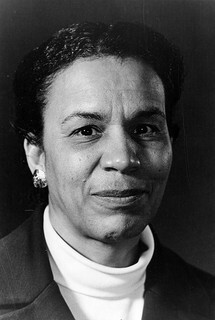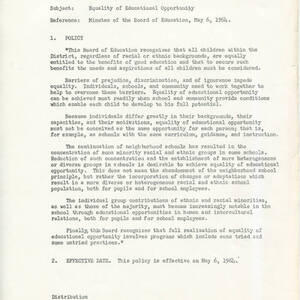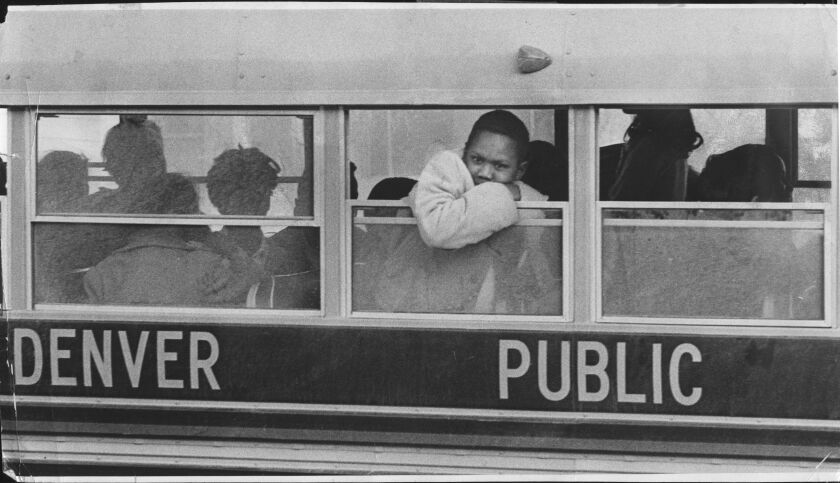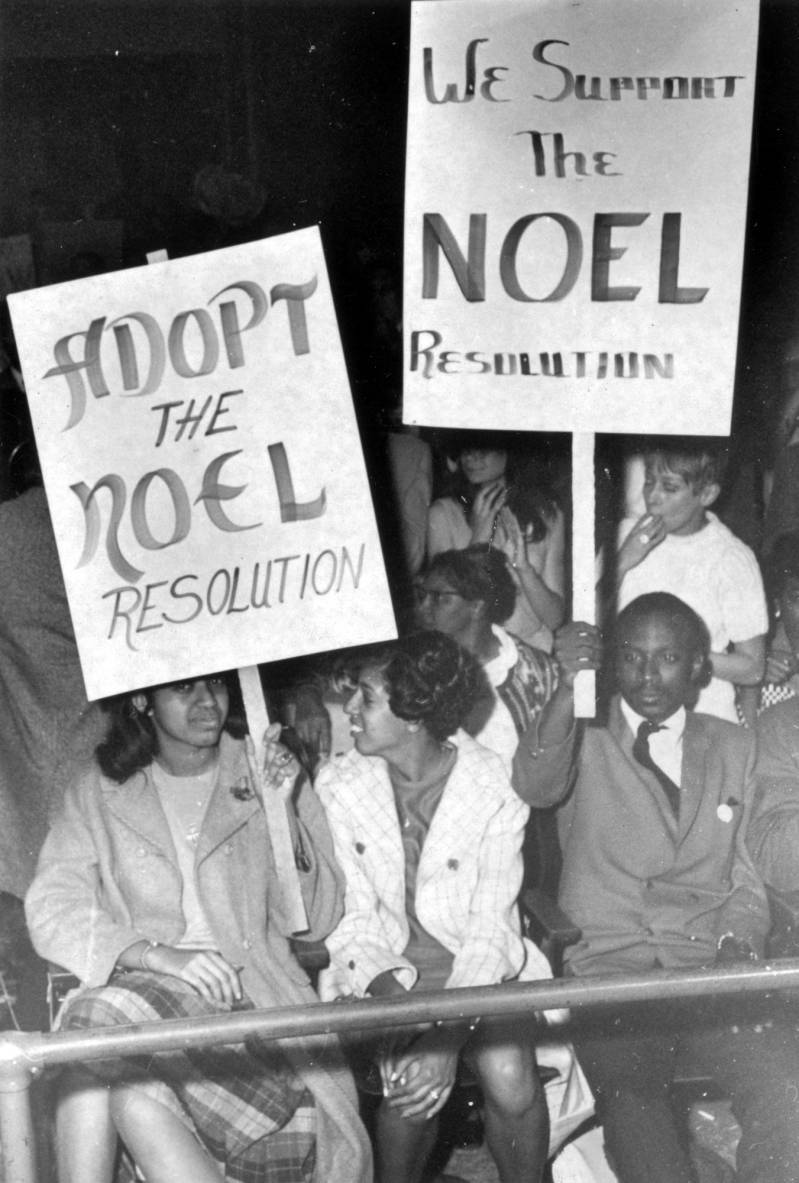Rachel Noel: Mother of Denver’s School Integration
Rising Through the Ranks
Rachel Bassette Noel, mother of Edmond Noel, was an American civil rights leader in Colorado, and a giant in the fight towards education equity (MSU Denver, 2023). She was born on January 15, 1918, in Hampton, Virginia. Her parents believed in the importance of a higher education and stressed to her the significance of going to college. Noel earned her B.A. degree from Hampton Institute, later named Hampton University, and she received her M.A. degree in sociology from Fisk University. She is perhaps best known for the "Noel Resolution,” a 1968 plan to integrate the Denver city school district, and her work to implement that plan, as well as other civil rights initiatives. In 1996, Noel was inducted into the Colorado Women's Hall of Fame. She was the first Black representative elected to the Denver Public Schools Board of Education, the first Black member and chair of the University of Colorado Board of Regents, and the first Black woman elected statewide in Colorado. Mrs. Noel was on the FBI watchlist and received personal threats to her life from government heads who resented her mobilization of Black Coloradans. The Noels' home was even said to be monitered by the FBI.
Denver's Landscape of Segregation
After 1920, prejudice against African Americans was reinforced by the second revival of the Ku Klux Klan (Goldberg, 1980). The Great Migration brought hundreds of Black families to the city, fleeing oppression in the south. Relative to many other migrants, African Americans in Denver were more educated, but they still faced widespread discrimination and fought to attain any semblance of economic or political power. By 1925, Klan members and their sponsored candidates controlled the Colorado State House and Senate, the office of Secretary of State, a state Supreme Court judgeship, seven benches on Denver District Court, and city councils in some Colorado towns.
The Noel Resolution
The Noel Resolution proposed closing overpopulated schools that were placed in Black neighborhoods in Denver and bussing those students into better-resourced, predominantly white, schools. Although segregation was not written into the city’s legal code, Denver Public Schools was “de-facto” segregated, which meant that the quality of education for Black students was kept below their white peers through practice, not law (Seaman, 2023). Before 1968, most Denver textbooks centered on the achievements of white Europeans and Americans, distorting history in their favor. This resolution also called for the corrective revision of these books to tell the histories of the oppressed.
Many white Denverites vehemently protested this resolution. Mrs. Noel received calls and letters threatening that she, her husband, and her children would be hurt or killed if schools were integrated. Rachel never allowed these threats to stop her from pushing for integration of Denver schools, warning her supporters against falling victim to fear mongers. The youth of Denver showed much greater support for the Noel Resolution; when parents gathered to protest the resolution, a multiracial coalition of over two hundred high school students formed a counter-protest. The Denver School Board passed the Noel Resolution in January 1969, but it was quickly repealed in June 1969 when a new administration entered office. Although the new school board overturned the resolution, the suit to integrate Denver schools was eventually upheld by the United States Supreme Court. It was the first Supreme Court desegregation case that dealt with a school system outside of the south.
“If we let the bigots have their way, Denver will move toward an apartheid society.”
- Rachel B. Noel on school segregation
What He Learned
His mother was the first to instill in Mr. Noel the virtue of generational progress. She was unwilling to accept that educational opportunities for Black students would remain limited, and she worked to improve their lot. The Noels seem to have always been bent on the forward movement of the race. They inspired others to dream of more than what they currently had. Mr. Noel would carry this lesson from his mother into his Dartmouth years, always reaching for the next wrung of the academic ladder, and ultimately into his career as an attorney.




